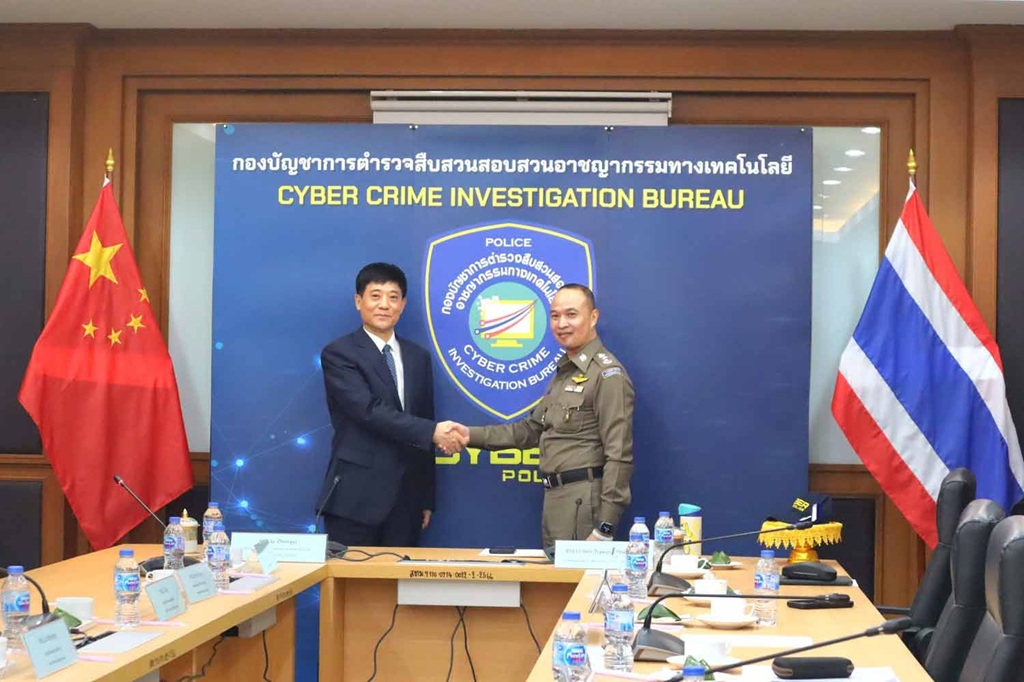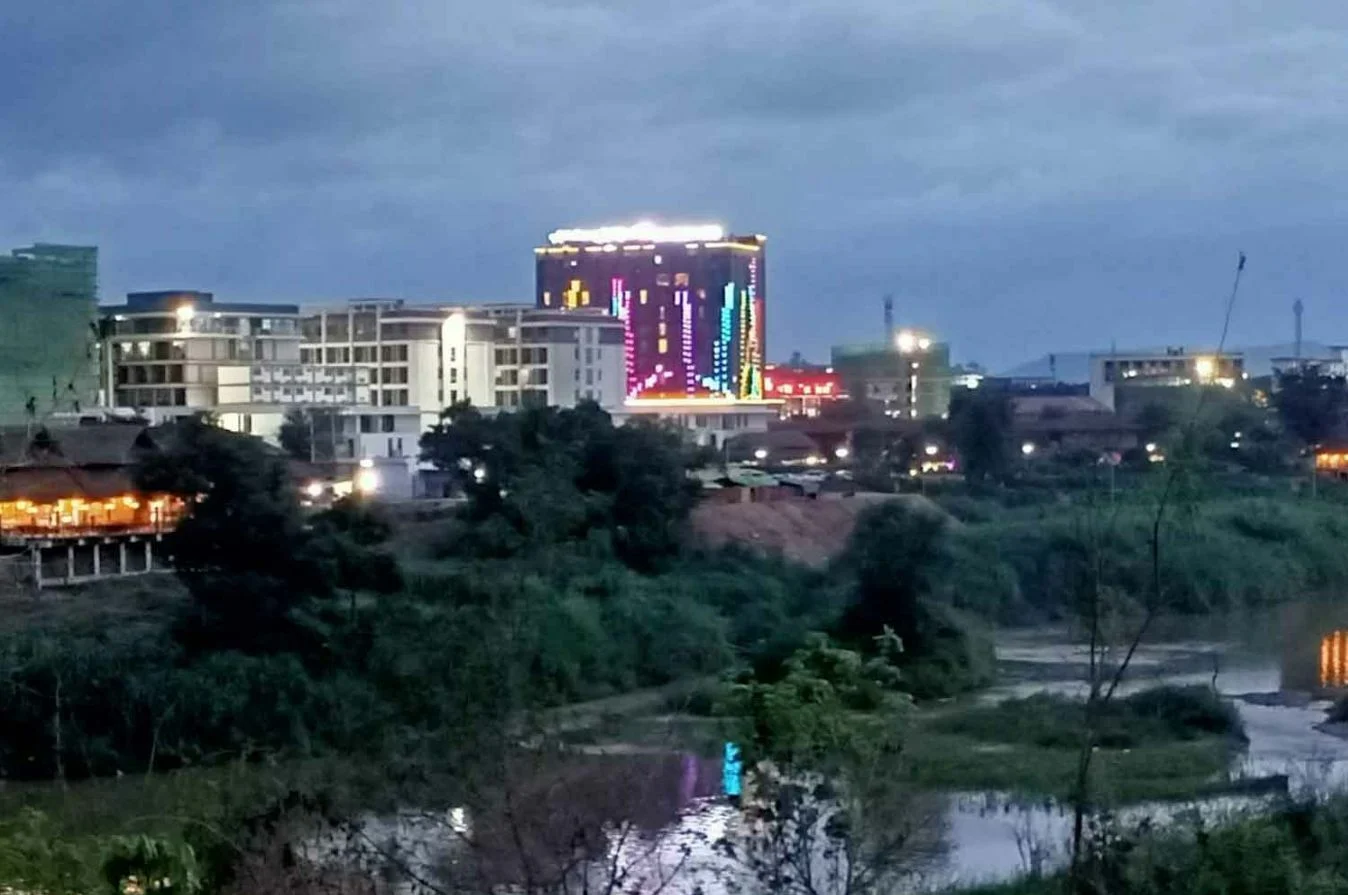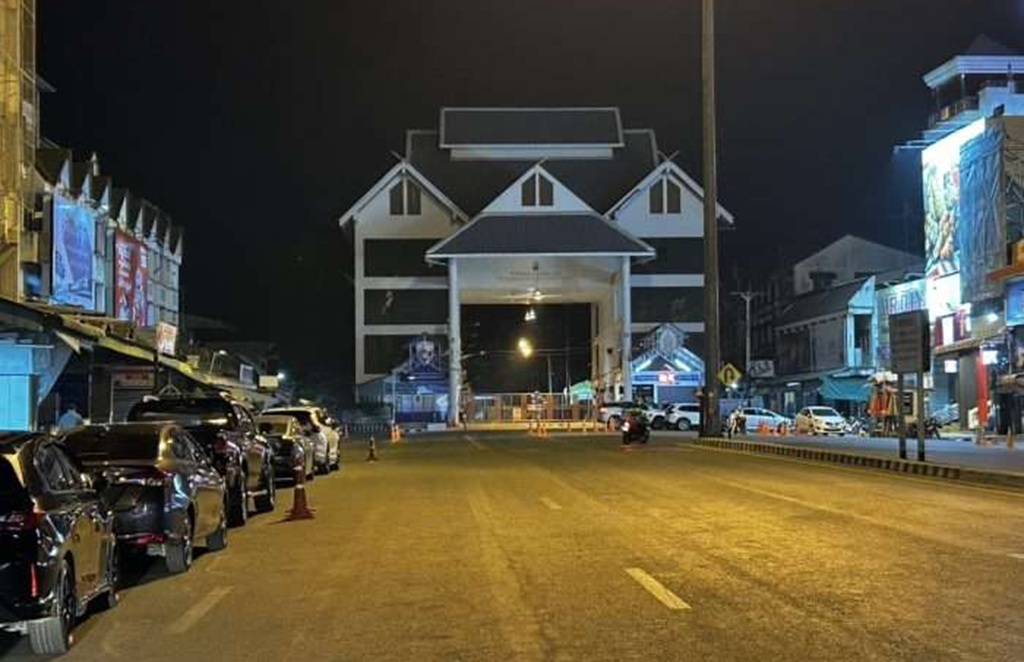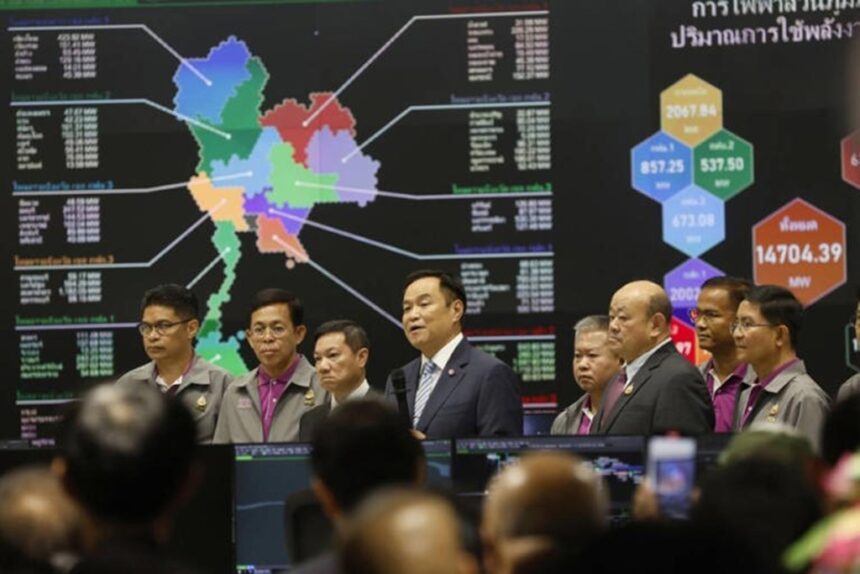The government of Thailand has finally taken action after months of severe criticism from Beijing for its failure to take decisive action against scam call centres operating from across the border in Myanmar.
According to Defence Minister Phumtham Wechayachai, the National Security Council resolved at its meeting on February 4 that the Thai Provincial Electricity Authority (PEA) halted the provision of electricity, internet service, and fuel to five locations in the scam cities of Myanmar at 9:00 a.m. on February 5.
He stated that the decision was reached after discussions with all parties involved, and it was unanimously determined that this matter impacts the security of the Thai people.
He disclosed that the fraudsters have caused over 86 billion baht in damage, with an average daily loss of over 80 million baht, based on an estimated 550,000 cases.
Within hours of the decision, Phumtham, the defence minister, convened a meeting with Liu Zhongyi, the Chinese assistant minister, to address the issue of scam cities. China desires Thailand to block all potential pathways for scammers by cutting off supply routes.
“I informed the Chinese official that any decision regarding the closure of the border must be a joint agreement, as both countries share common issues,” Phumtham stated to reporters. “China agrees to respect Thailand’s sovereignty”, he said.
He added that in the interim, a meeting between Myanmar, China, and Thailand to address the issue is also possible.
The Thai government had been delaying action on the persistent issue for an extended period; however, Liu’s visit appears to have provided a boost.
During his meetings, Liu obtained an agreement from the Thai government to combat a dozen scammers operating in Myanmar’s border areas, specifically in the Mae Sot district of Tak province.

Request from China
During their meeting with their Thai counterparts in the Royal Thai Police, the Chinese delegation submitted four requests. Police Inspector General Thatchai Pitaneelabut, who oversees the anti-human trafficking centre, is responsible for these requests.
- Beijing requested that Thai authorities turn off public utilities, including internet signals, water supplies, and electricity, used by call centre gangs operating in Myanmar.
- The Thai government was urged to engage in negotiations with ethnic armed groups (EAOs) that control the border regions of Myanmar to repatriate Chinese nationals who were tricked into working there. According to Chinese estimates, between 3,000 and 5,000 of these people are being held captive to work in the scam cities.
- Beijing intends to build a Thai-Chinese coordination centre in the Mae Sot district near the border.
- China also wants Chinese nationals implicated in call centre scams near the Myanmar border to be arrested by Thai police. Chinese officials estimate that over 50,000 people are probably involved in these activities.
Additionally, China wants the Thai police to apprehend Chinese nationals discovered to be engaged in call-centre scam activities along the Myanmar border. According to Chinese authorities, over 50,000 individuals are likely involved in these types of activities.
Scam hubs located near the Myanmar-Thailand border, particularly in the Shan and Karen States, have evolved into hubs of cybercrime since 2019. Trafficked individuals are compelled to engage in online fraud activities.

Chinese Gangs Run Shwe Kokko, Myanmar
Shwe Kokko is one of the primary hotspots for scams, money laundering, human trafficking, and arms trading. KK Park in Myawaddy, another significant hub, is notorious for coercing labourers into internet scams, similar to Shwe Kokko’s role. Chong Khaep, Taizhang, or Tha Chang, a more recent hub, has garnered attention.
The EAOs and the Tatmadaw-allied Border Guard Force, which are key enforcers for many scam centres, protect the Chinese criminal groups that lead these operations.
Before Liu’s arrival, opposition MP Rangsiman Rome had urged the government and relevant agencies to interrupt the power supply and other utilities Thailand provides to the border cities, which are considered scams.
The PEA, a state enterprise under the jurisdiction of the Interior Ministry, claimed that it was authorized by a Cabinet resolution in 1996 to sell power to Myanmar without any acknowledgement of illicit business in the border areas. This claim resulted in a controversy regarding Thailand’s electricity power supply to the scam cities along the border for years.
According to Interior Minister Anutin Charnvirakul, cutting off the power supply to Myanmar’s border necessitates a Cabinet order.
Anutin, a deputy prime minister, stated, “We have been instructed to sell electricity to neighboring countries for humanitarian purposes, as the Ministry of Interior is the implementing authority.”
“The entity that ordered us to sell electricity must notify us to cease supply if there is a reason; we are unable to do so independently.”
He stated that the Interior Ministry of Thailand was solely responsible for transmitting electricity across the border; however, it was unaware of the recipient’s identity, as this was not within the PEA’s jurisdiction.
However, Anutin proposed that the process would be simple if the Myanmar authorities requested a power cut, as the matter could be submitted directly to the Thai Cabinet for action.

Thailand Cuts Myanmar’s Fuel and Electricity Supply
According to Anutin, Prime Minister Paetongtarn Shinawatra may issue an immediate directive in urgent situations.
According to PEA deputy governor Pradit Fuangfoo, the PEA generates an average of 800 million baht annually from the sale of electricity to Myanmar, out of a total of 600 billion baht in electricity sales.
He further stated that the electricity is sold at the same price as in Thailand, which accounts for a negligible portion of the total revenue.
According to Pradit, the Myanmar government has granted contractual partners concessions for electricity trading, which resulted in the electricity supply at the power trading points to Myanmar.
He stated that the Foreign Ministry has verified the legitimacy and document credibility of these partners. He also mentioned that the PEA collaborates with Thai security agencies in the region before supplying electricity to Myanmar.
However, Thailand disconnected the power supply to Shwe Kokko’s scam city in 2023 in response to Chinese pressure, following a request from the Myanmar embassy in Bangkok.
According to Thailand’s Foreign Minister Maris Sangiampongsa, the issue was discussed during a meeting of the special task force for managing the situation resulting from unrest in Myanmar. However, she stated that she required additional information before making a decision.
He stated that the task force, activated in late October last year, had just convened its first meeting on January 31. The task force has assigned National Security Council (NSC) secretary-general Chatchai Bangchuad to gather information and opinions from relevant agencies before deciding within a month.
Chatchai informed that he could not make the final decision, but he would consult with the EPA and other pertinent agencies before submitting his recommendations to Prime Minister Paetongtarn, the chairperson of the NSC.
Thailand has been tardy in its response. Maris’s task force was the second to be operational since Pheu Thai established a coalition government in 2023.
The initial one, established during the administration of Srettha Thavisin and chaired by Parnpree Ankara, the Deputy Prime Minister and foreign minister at the time, was able to convene only one meeting prior to the government’s termination.
Maris stated following the meeting on January 31 that his task force was dedicated to the regulation, control, and security of border areas to mitigate illicit activities, such as human trafficking, cyber-scamming, and drug smuggling.
He also stated that the task force sought to establish a sense of normalcy in the border regions with Myanmar to facilitate the continuation of business operations and trade.
Maris informed reporters that regulating the movement of various factors, such as people, goods, and resources, is essential to prevent the support of transnational crimes or undesirable activities.
“In order to prevent the use of border areas for criminal activities, authorities must monitor and track suspicious individuals, particularly foreign nationals, who necessitate more stringent surveillance, control, and enforcement measures,” he stated.
Related News:
Thailand Straightens Laws to Combat Cyber Crime

Geoff Thomas is an award winning journalist known for his sharp insights and no-nonsense reporting style. Over the years he has worked for Reuters and the Canadian Press covering everything from political scandals to human interest stories. He brings a clear and direct approach to his work.














